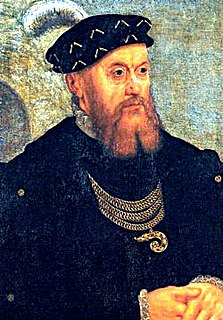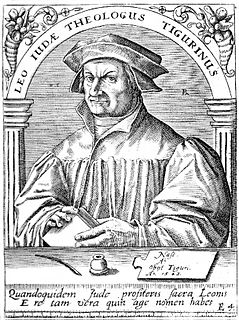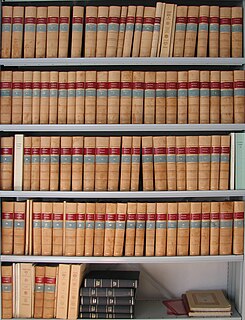
Huldrych Zwingli or Ulrich Zwingli was a leader of the Reformation in Switzerland, born during a time of emerging Swiss patriotism and increasing criticism of the Swiss mercenary system. He attended the University of Vienna and the University of Basel, a scholarly center of Renaissance humanism. He continued his studies while he served as a pastor in Glarus and later in Einsiedeln, where he was influenced by the writings of Erasmus.

Christian III reigned as King of Denmark from 1534 and King of Norway from 1537 until his death in 1559. During his reign, Christian formed close ties between the church and the crown. He established Lutheranism as the state religion within his realms as part of the Protestant Reformation.

Martin Bucer was a German Protestant reformer based in Strasbourg who influenced Lutheran, Calvinist, and Anglican doctrines and practices. Bucer was originally a member of the Dominican Order, but after meeting and being influenced by Martin Luther in 1518 he arranged for his monastic vows to be annulled. He then began to work for the Reformation, with the support of Franz von Sickingen.

Johannes Oecolampadius was a German Protestant reformer in the Calvinist tradition from the Electoral Palatinate. He was the leader of the Protestant faction in the Baden Disputation of 1526, and he was one of the founders of Protestant theology, engaging in disputes with Erasmus, Zwingli, Luther and Martin Bucer. Calvin adopted his view on the Eucharist dispute.

Wolfgang Fabricius Capito was a German Protestant reformer in the Calvinist tradition.

Antoine, known as the Good, was Duke of Lorraine from 1508 until his death in 1544. Raised at the French court, Antoine would campaign in Italy twice: once under Louis XII and the other with Francis I. During the German Peasants' War, he would defeat two armies while retaking Saverne and Sélestat. Antoine succeeded in freeing Lorraine from the Holy Roman Empire with the Treaty of Nuremberg of 1542. In 1544, while Antoine suffered from an illness, the Duchy of Lorraine was invaded by Emperor Charles V's army on their way to attack France. Fleeing the Imperial armies, Antoine was taken to Bar-le-Duc where he died.

Jacques Lefèvre d'Étaples was a French theologian and a leading figure in French humanism. He was a precursor of the Protestant movement in France. The "d'Étaples" was not part of his name as such, but used to distinguish him from Jacques Lefèvre of Deventer, a less significant contemporary, a friend and correspondent of Erasmus. Both are also sometimes called by the German version of their name, Jacob/Jakob Faber. He himself had a sometimes tense relationship with Erasmus, whose work on Biblical translation and in theology closely paralleled his own.

Leo Jud, known to his contemporaries as Meister Leu, was a Swiss reformer who worked with Huldrych Zwingli in Zürich.

Ambrosius Blarer was an influential Protestant reformer in southern Germany and north-eastern Switzerland.

Johann Froben, in Latin: Johannes Frobenius, was a famous printer, publisher and learned Renaissance humanist in Basel. He was a close friend of Erasmus and cooperated closely with Hans Holbein the Younger. He made Basel one of the world's leading centres of the book trade. He passed his printing business on to his son, Hieronymus, and grandson, Ambrosius Frobenius.

Protestant Reformers were those theologians whose careers, works and actions brought about the Protestant Reformation of the 16th century.
Wittenberg Concord, is a religious concordat signed by Reformed and Lutheran theologians and churchmen on 29 May 1536 as an attempted resolution of their differences with respect to the Real Presence of Christ's body and blood in the Eucharist. It is considered a foundational document for Lutheranism but was later rejected by the Reformed.

Wibrandis Rosenblatt (1504–1564) was the wife of three major religious reformers, who predeceased her: Johannes Oecolampadius, Wolfgang Capito, and Martin Bucer.

Paul Fagius was a Renaissance scholar of Biblical Hebrew and Protestant reformer.
The Tetrapolitan Confession, also called the Strasbourg Confession or Swabian Confession, was an early Protestant confession of faith drawn up by Martin Bucer and Wolfgang Capito and presented to the Emperor Charles V at the Diet of Augsburg on 9 July 1530 on behalf of the four south German cities of Konstanz, Lindau, Memmingen and Strasbourg. The confession was based on an early draft of the Augsburg Confession to which Bucer and Capito had secretly obtained access, but amended in the direction of Zwinglianism. Its purpose was to prevent a schism within Protestantism. It is the oldest confession of the Reformed tradition produced in Germany.
Veit Amerbach, was a German Lutheran theologian, scholar and humanist, who converted to Catholicism.

Wolfgang Musculus, born "Müslin" or "Mauslein", was a Reformed theologian of the Reformation.

The Weimar edition of Luther's works, also known as the Weimarer Ausgabe (WA), is a critical complete edition of all writings of Martin Luther and his verbal statements, in Latin and German. The official title of this edition is D. Martin Luthers Werke: kritische Gesammtausgabe. Also included are Luther's Table Talk (Tischreden), Letters (Briefe), and Bible Translation. The three subseries are numbered separately.
Johannes Bünderlin was an Austrian Anabaptist. Bünderlin was a humanist Catholic priest who had been attracted to the Reformation in Moravia and was baptised by Johannes Denck. Bünderlin returned to Linz and preached there until forced to leave for Konstanz in 1529 at the invitation of Johannes Zwick, though Zwick soon considered that Bünderlin was too radical in his ideas and Bünderlin set out for Prussia.













